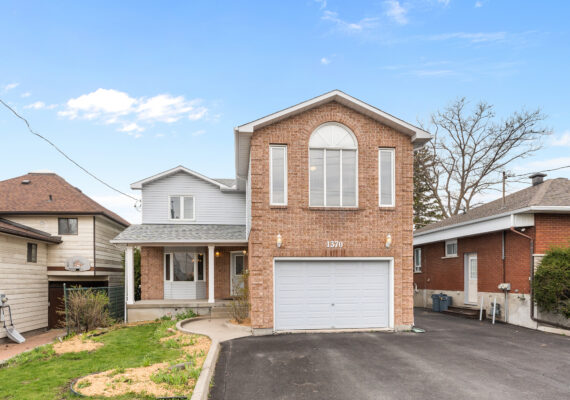
If you’re a homeowner looking to unlock the equity you’ve built up in your home, you might have heard about second mortgages. But, amid a wealth of other options, it’s difficult to know whether it’s the right choice for you. So, let’s see exactly what a second mortgage is, how it works and what the pros and cons are.
What Is a Second Mortgage?
A second mortgage is more or less what it sounds like. As a homeowner with a standard mortgage, you build up equity over time — equity being the portion of the home you own by paying off the original mortgage each month. With a second mortgage, you can take that equity and spend it elsewhere. In fact, it can be spent on pretty much anything you like.
Home Equity: The Basics
Before delving into second mortgages, it’s worth covering the basics of equity. With each mortgage payment you make, you’ll pay interest, but also principal. As you pay principal, the equity you own increases and the more home you own.
Your equity can also grow in other ways. If you’ve made upgrades to your home or the local market is particularly strong, your equity will increase with your homes assessed value. In the same way, it can also drop if the opposite is true.
With a second mortgage, the more equity you have, the larger the loan you can qualify for.
How Does a Second Mortgage Work?
Normally, the equity you have in your home is tied up, but a second mortgage essentially unlocks it. However, lenders won’t typically allow you to use all of your equity. The amount available is generally calculated by looking at how much equity you have, the amount you still owe on your first mortgage, and your home’s assessed value. In most cases, lenders will ensure that you still have at least 20% of the value of your home left in equity.
After successful application, your lender may offer a lump-sum payment or monthly installments. Either way, you’ll be required to pay back the loan each month. This adds a second monthly payment on top of your regular mortgage payments. If you fail to make the payments on your second mortgage, the equity you’ve built up in your home will be used as collateral.
Do I Qualify for a Second Mortgage?
To qualify for a second mortgage, you’ll need to have built up enough equity, have a credit score of at least 620 and a debt-to-income (DTI) ratio of less than 43%. It’s possible to obtain a second mortgage from your current lender, though they will typically offer higher interest rates than if you applied with a different lender.
Second Mortgage vs. Refinancing
There’s a big difference between taking out a second mortgage and refinancing an existing one. With a second mortgage, you’re adding a new monthly payment on top of the existing one. However, when you refinance a mortgage, you cash out your equity and renegotiate the terms of the loan with the same lender. As such, you only pay one monthly payment when you choose to refinance.
Lenders offering a second mortgage typically take on more risk than lenders who are refinancing an existing mortgage. This is because with a second mortgage, if you fail to make payments and your home goes into foreclosure, the original lender takes priority. The second lender only gets paid after the first has been fully repaid.
As a result, interest charges on a second mortgage are generally much higher than on a refinanced mortgage.
Pros & Cons of Getting a Second Mortgage
Advantages
The main advantages of taking out a second mortgage include:
- Large loan amount: if you’ve been paying off your first mortgage for many years, you will have built up a lot of equity. In some cases, lenders will allow you to use up to 90% of your equity. This is typically a far larger amount than any other type of loan.
- No restrictions on use: you can use the loan for anything you want, from investments to home repairs and anything in between.
- Lower interest rates: compared to credit cards and many other personal loans, a second mortgage typically offers lower rates. This makes it a good choice for paying off large credit card debts.
Disadvantages
However, there are a few disadvantages too:
- Additional monthly payment: with two mortgage payments to make each month, this can strain your finances, potentially leading to missed payments.
- Higher interest rates: compared to refinancing your mortgage, you’ll pay more in interest with a second mortgage.
All in all, a second mortgage can be a great option, working especially well for investments.
Pilon Real Estate Group Featured Listings: Click here!
We Keep You Covered When You Buy a Home With Our 12 Month Buyer Protection Plan!
Details at: www.HomeBuyerProtectionPlan.ca
Free Home Search With Proprietary MLS Access – New Listings – Faster Updates And More Accurate Data!
Find Homes Now: www.FindOttawaHomesForSale.com
Find Out How We Get Our Sellers More: Click here!
RE/MAX Hallmark Pilon Group Realty
www.PilonGroup.com
Email: Info@PilonGroup.com
Direct: 613.909.8100






